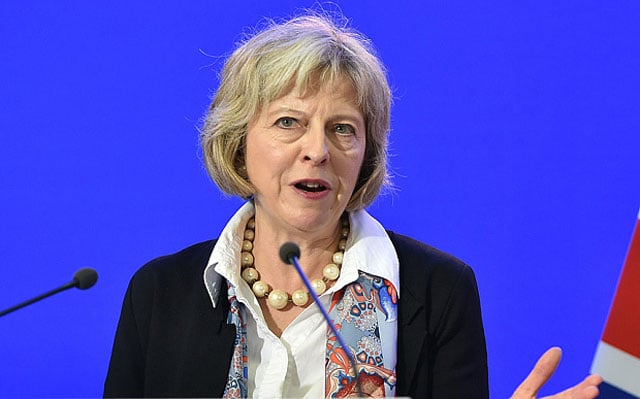
UK hacked routers to monitor Pakistan communications data: Snowden
May told the BBC's Andrew Marr show on Sunday that the new bill, to be presented in parliament on Wednesday, was "quite different" from earlier plans to give police greater powers to monitor communications and web activities that opponents dubbed a "snoopers' charter".
She said the Investigatory Powers Bill would not include automatic powers to go through people's browsing history and any "intrusive" actions would be subject of "strong oversight arrangements", in a nod to critics who said earlier plans would trample over the public's right to privacy.
Nisar urges West to stop spread of Islamophobia
"It's about bringing the ability of our law enforcement and security services to deal with the issues they are dealing with ... and bringing that forward into the digital age," she said.
She also said the new bill would not require communication service providers in Britain to store third party data.
A debate about how to protect privacy while giving agencies the powers they need in the digital age has raged since former US intelligence contractor Edward Snowden leaked details about mass surveillance by British and US spies in 2013.
Pakistan building digital espionage capacity to rival the US
Britain's security chiefs argue they are facing a capability gap because of technological advances, and say that their work has been severely hampered by Snowden's disclosures.
But campaigners and civil rights groups have said Snowden's disclosures about mass surveillance showed the authorities were not respecting people's entitlement to privacy.










1732354127-0/Untitled-design-(3)1732354127-0-270x192.webp)






COMMENTS
Comments are moderated and generally will be posted if they are on-topic and not abusive.
For more information, please see our Comments FAQ